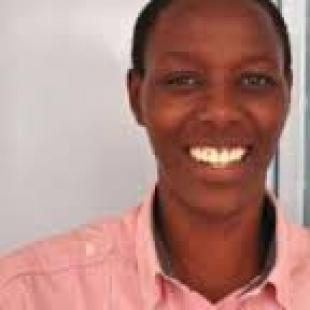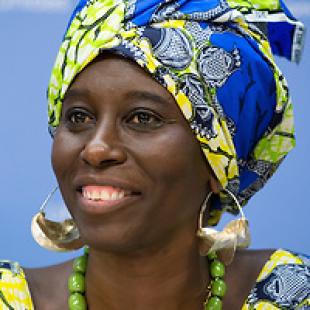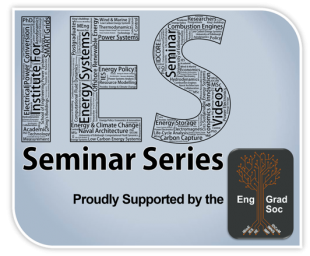Location:
Alrick Building, Classroom 10
Date:
First Speaker: Dr Mary Njenga
Affiliation: Commonwealth Professional Fellowship 2016, University of Nairobi, Kenya
Title: Making Woodfuel Sustainable in sub-Saharan Africa
Fuel briquettes are a concept proven local innovation that can provide a cheaper and cleaner source of cooking energy. They consist of organic residues mixed with soil, paper or animal dung as binders. The energy carrier and the binder are mixed with water and this slurry is compacted manually into solid mass and dried in the sun and they are used like charcoal or firewood. Briquettes made from charcoal dust (80%) and soil (20%) burn more regularly and for 4 hours compared to 2.5 hours for pure charcoal, resulting in energy savings. Dr. Njenga’s research showed that the cost of cooking a traditional meal with biomass briquettes is 3 Kenya Shillings (US$0.04) or nine times cheaper than cooking that same meal with charcoal (26 KSH or US$0.30) and 15 times cheaper than cooking with kerosene (45 KSH or US$0.60). Her research also showed that the briquettes lower household air concentration of carbon monoxide (CO) and fine particulate matter (PM2.5) to 1/3 and 1/9, of what is emitted by lump charcoal. PM2.5 from charcoal briquettes meet WHO standards. The innovation also creates employment, generates income through sales, and institutionally strengthens communities through working together in groups and pooling savings.
Scaling-up fuel briquettes has the potential to improve women’s and households’ health and well-being and reduce pressure on the environment. Women and youth groups are already making briquettes in Kenya but are faced with the challenges of lack of investing capital and space to scale-up their production, low quality product and poor market penetration due to low awareness on the multiple benefits to buyers.
Biography:
Dr. Mary Njenga is a post-doctoral fellow in bio-energy at World Agroforestry Centre (ICRAF) Nairobi, Kenya. She earned a PhD in Management of Agroecosystems and Environment from the University of Nairobi, Kenya where she studied fuel briquette technologies and their implications on greenhouse gases and livelihoods in Kenya. Dr. Njenga’s doctoral work was also affiliated with World Agroforestry Centre (ICRAF), Swedish University of Agricultural Sciences (SLU) and Michigan State University (MSU). Her PhD was supported by the Borlaug LEAP fellowship, African Women in Agricultural Research and Development (AWARD), Agropolis fellowship-IDRC, and ICRAF. Njenga used her Borlaug LEAP fellowship to evaluate fuel briquette technologies for environmental, social-economic and food security implications in Kenya. She worked with her US mentor, Dr. John Kerr, Michigan State University on the economic cost-benefit analysis of the technology. Her CGIAR mentor Dr. Ramni Jamnadass, ICRAF, provided guidance on the bio-energy aspects of the project.
For close to a decade now Dr. Mary Njenga has been working with community groups in developing charcoal fuel briquettes, a local innovation that provides a less expensive, cleaner source of cooking energy.
Second Speaker: Sheila Oparaocha
Affiliation: ENERGIA, International Network on Gender and Sustainable Energy
Title: Expending Energy Access through Women's Economic Empowerment (WE)
Biography:
Sheila Oparaocha has seventeen years of working experience in the gender and energy sector, a Bachelor’s Degree in Veterinary Medicine, and a Master’s Degree in Gender and Development Planning. She currently leads the International Secretariat (IS) based at Hivos, an international organization based in the Netherlands with 50 years of experience in the development sector – that seeks new solutions to persistent global issues. Sheila also holds the position of International Coordinator of the ENERGIA International Network on Gender and Sustainable Energy. Established in 1996 with the objective of mainstreaming gender in energy sector policies and programs in developing countries, ENERGIA has emerged as a leading international network and played a key role in establishing “gender and energy” as a credible issue. Under her leadership, the IS manages a multi- country and multi-partner program portfolio spanning 22 countries in Asia and Africa.





